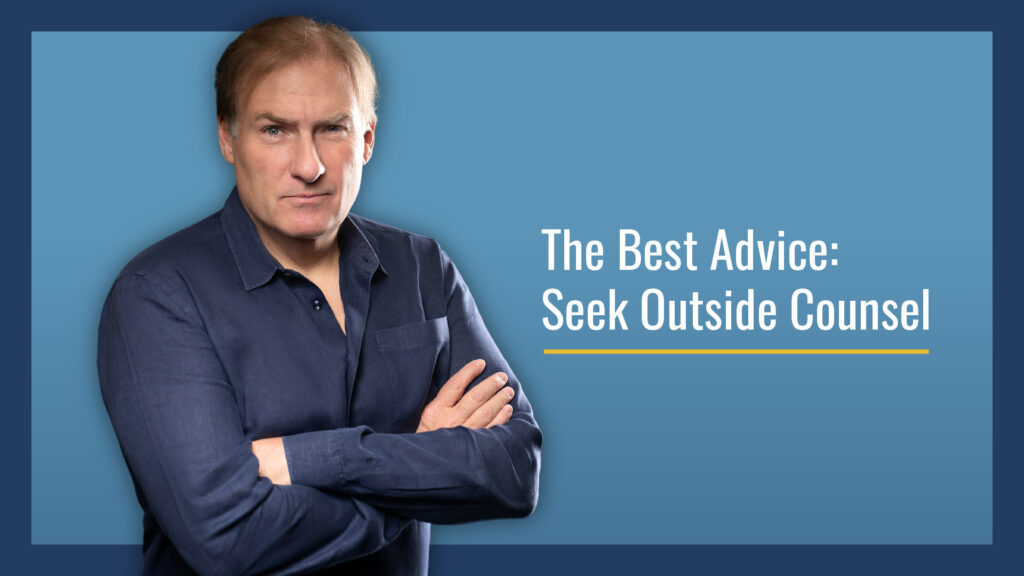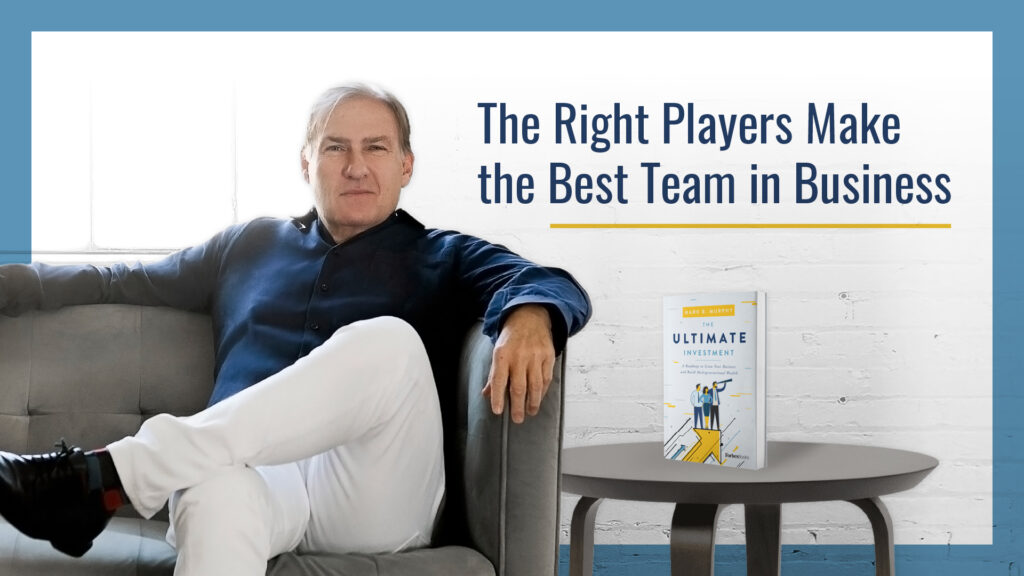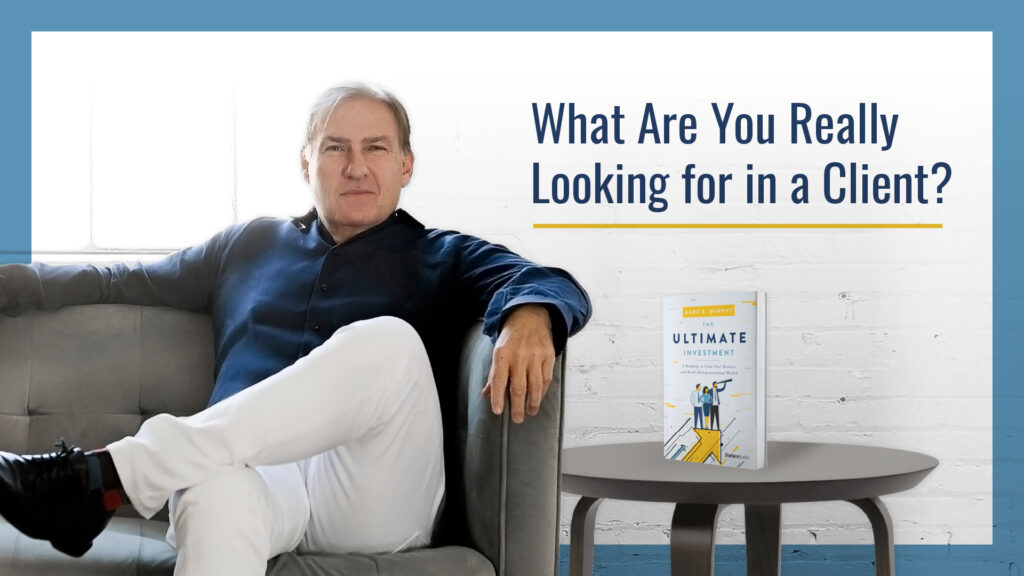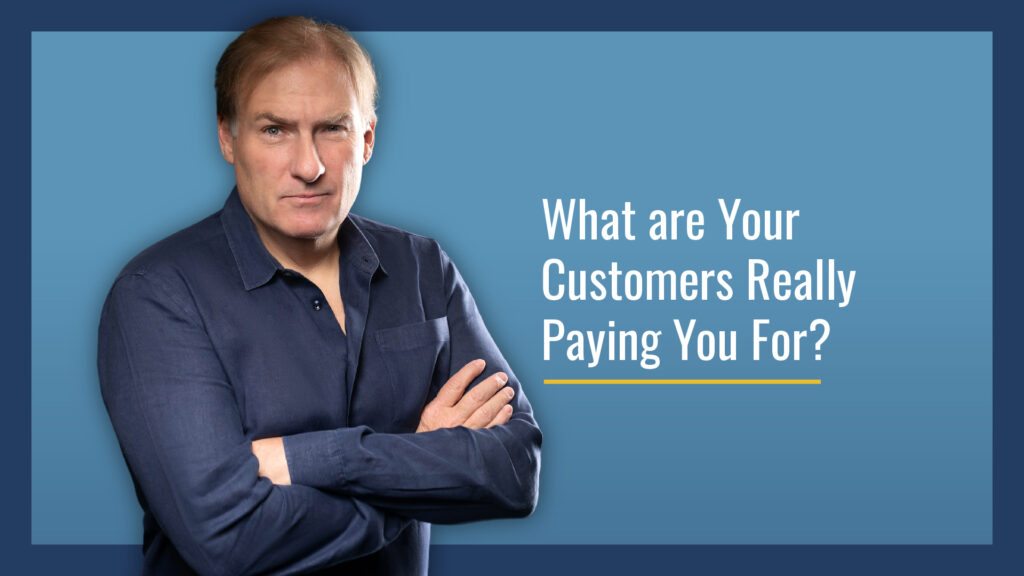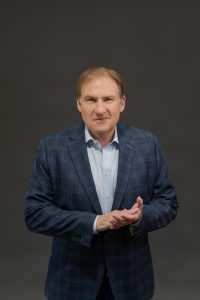If you were to ask someone like Bill Gates how he became so successful, chances are he wouldn’t tell you he’s worth $130 billion because he spent years putting his money in his 401(k). His net worth comes from years of investing in his business and business deals.
Still, there’s one investment that should take priority over all others. What’s that one investment? You. If you only have $1 to invest in something, the best investment you can make as an entrepreneur is in yourself.
Of all the things you can invest in, putting that money toward your business may be the best option be because compared to other options, it is the most likely to generate an exponential rate of return. Think about it: through your business, you can potentially double your income. An investment vehicle like the stock market rarely provides that same rate of return. With a typical investment like the stock market, an insurance policy, or high-interest checking account—the kind often suggested by a financial or tax advisor, CPA, attorney, or other consultant—you may succeed in creating a comfortable lifestyle. But if you really want to succeed in building multigenerational wealth, you need to invest in something closer to home.
Don’t get me wrong; comfort is a good thing. But aiming for a comfortable lifestyle is like being a hamster in a wheel, running in circles faster and faster to keep up with your increasingly expensive needs and tastes. Moving from a Toyota Camry to a Mercedes-Benz, from the public golf course to a fancy club, from your current home to the better part of town with access to the best schools—it all costs more. And the taxes are higher too.
If you’re going to move into the investor class, you’ll need to defer the temptation to indulge in immediate gratification. Instead of focusing on building a fancier lifestyle, feed your business—that beast is your cash machine. Investing in your business will provide you cash flow and asset value, and as its value increases, so will your wealth. If you opt instead to feed your lifestyle first and don’t focus on feeding the beast, you’ll put too much unnecessary pressure on cash flow. That will ultimately affect long-term business decisions too. Since cash is the blood of the business, if you’re gorging your lifestyle, your business will starve.
Investing in your business will instead help it grow by ensuring it has ample financial resources versus always being strapped for cash while your lifestyle lives it up. If you’re pinching pennies to keep the business going your business won’t keep going for long—and then there goes that fancy lifestyle too.
Beyond the dollars and cents, you should also invest in yourself by reading—not just the top business or self-help books. Read everything about everything. That’s the way to become a well-rounded, knowledgeable leader.
Investing in yourself also means surrounding yourself with good, ambitious, intelligent people—people who encourage you to aim higher and to do great things. Like plants, humans thrive based on the environment they are sowed in. Surround yourself with ambitious, good people and you’ll create an environment in which to thrive and as the stakes and ante grow, so will you—you’ll continue to flourish until success is a foregone conclusion.
Of all the things you can invest in for yourself, single-handedly, is to take care of your mind. Emotional fitness is paramount for leaders of organizations because your team—and your clients—will very carefully watch what you say and do. In fact, the fitness of the organization as a whole stems from a single source: your emotional fitness. As If a business owner is erratic and the organization reactionary, the business itself won’t be emotionally fit.
Too often, dysfunctional owners bring in a consultant or coach, throw money at them, and insist that the dysfunction in their business is the fault of the people who work there. The team needs to be fixed, not the leader. In truth, if these leaders would realize that their own emotional fitness—or lack thereof—is the problem, then fixing that would lead the organization to be emotionally fit. If you, the leader, are a calm, steadying influence, you will drive confidence in your team and clients alike.
When you think about it, emotional fitness is really about discipline. It’s about being in control of your emotions and using them in a positive way with those around you. Now, everyone has bad days. I’ve had stints of several sleepless nights in a row, which has put me on edge. Let’s face it. There are times in life where it’s near impossible to control your emotions. But even when there are challenges outside the office, it’s up to me, as the leader, to show up confident, composed, and ready to foster emotional fitness throughout the organization.
Still, with life—and business—sometimes presenting a constant roller-coaster of potential for emotional turmoil, it’s really asking a lot for anyone, even a leader, to be 100 percent in control at all times. What do we do in those situations? For starters, learn to breathe—keep breathing through the issues and everything will align. It’s a little like a technique called upper cervical chiropractic, where the two vertebrae at the top of the spine—the atlas and the axis—are lined up, which then snaps everything else into place.
I also rely on the twenty-four-hour rule—wait twenty-four hours before responding. Sometimes when I find myself ready to lash out at someone, whether in person or via phone or email, I’ll wait quietly instead. I’ll give myself a day to before responding so I can get a better handle on my emotions. When I’m calmer, then I reply. During that timeframe, I’ll sometimes even write out an email (without the recipient field filled in to avoid an accidental send). In that email, I’ll capture my frustration, anger, and emotion—then I’ll delete the email and move on. By using these techniques, or developing your own, you can vent, destress, and calm yourself without unduly damaging a relationship.
Often, as you work through your anger or frustration, you’ll likely come to realize that the emotional response you would have made would have been the wrong one. As an emotionally stable leader, you don’t want to be stuck with a reactive decision that turns out to be a mistake. Worse still, you’ll have to double-down on your mistake because, unless you want to appear indecisive, you’ll have to stick to the initial decision, supporting and moving forward with it.
Without an emotionally fit leader, an organization loses sight of its vision and instead focuses on its foibles and weaknesses. That leaves little energy to focus on desired outcomes for the long-term. If you are in the weeds emotionally, you’ll be unable to direct your company with intention, you’ll never see the big picture that’s needed in order to lead your team and your company to success.
When you walk into my office, you may notice a can of Goya beans at my desk. No, I don’t keep it there just because I have an unhealthy obsession with beans. Goya as an abbreviation stands for “get off your ass.” That can is a signal to everyone at my firm that we’re an organization that hustles to make the lives of every person we touch better. We’ll never grow complacent, there’s nothing we won’t do. But I’m going to keep driving that mission and goal, then I, as the leader, must remain emotionally fit. As the leader, it’s your job to get others to believe what you believe in, and that begins by investing in you.


